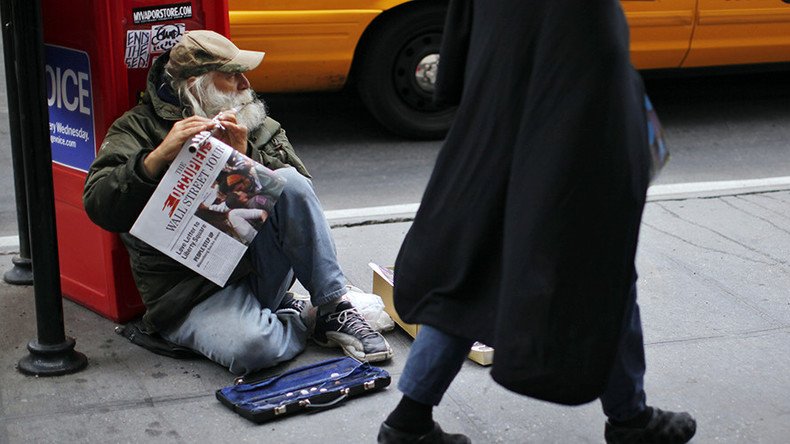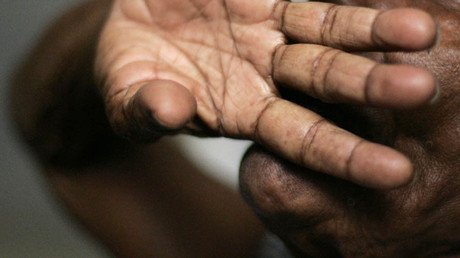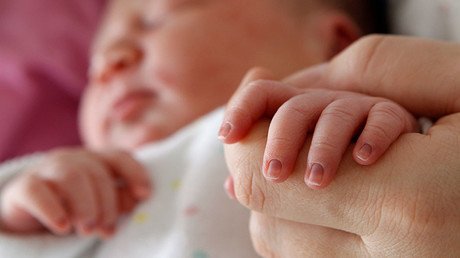Gap between rich & poor in US among highest of major industrial countries – report

Although the US is the richest country in the history of the world, its level of inequality is among the highest of major industrial countries, according to a new Oxfam report which says that tens of millions of working Americans are impoverished.
In 2015, 193 United Nations member states promised to reduce inequality as part of the Sustainable Development Goals (SDGs). Oxfam's Commitment to Reducing Inequality Index, released Monday, ranks 152 countries based on how they are tackling the gap between rich and poor.
The report breaks down each country's scores into three categories: spending on health, education and social protection; progressive structure and incidence of tax; and labor market policies to address inequality.
Oxfam took particular aim at the US in the report, stating that despite its wealth, its level of inequality is "the highest among most major industrial countries, leaving tens of millions of working people impoverished."
It noted that women and people of color are the ones who suffer the most.
America's weakest category was labor market policy, with the report noting that it is "extremely inadequate."
"The federal minimum wage of $7.25 is well below the $10.60 per hour needed for a family of four to stay above the federal poverty line," the report states, noting that the US government has not raised the minimum wage since 2009, which, adjusting for inflation, "is less than it was 50 years ago."
It also notes that employers in the US are only required to provide unpaid maternity leave, while 175 other countries committed to SDGs have instituted paid family leave for new mothers.
"Among rich countries, the USA does very badly," the report states, referring to its overall Commitment to Reducing Inequality (CRI) score of 23 – meaning it falls behind 22 countries on the list.
The United States' best category was "spending on health, education and social protection," though it still ranked 25th worldwide.
It notes that although per capita healthcare spending in the US is greater than anywhere else in the world, Americans "experience poor health outcomes, with life expectancy that ranks 31st internationally."
Meanwhile, Sweden came in first place in the overall ranking, with the report stating that it "has some of the most progressive spending in the world."
"It also has some of the best labor market policies, and their protection of women in the workplace is the best in the world."
Nigeria placed last in the overall ranking, with the report calling its social spending "shamefully low, reflected in very poor social outcomes for its citizens."
It notes that more than 10 million children in Nigeria do not go to school, while one in 10 do not reach their fifth birthday.
It goes on to state findings from the Africa Progress Panel, which determined that despite the country's positive economic growth, poverty in Nigeria has increased.
"Finally, Nigeria’s treatment of workers and women in the workplace also puts it near the bottom of the rankings," the report finds.
Despite Sweden's top ranking position, the report stresses that "no country is doing particularly well, and even those at the top have room for improvement."
"In total, 112 of the 152 countries included in the index are doing less than half of what they could do to reduce inequality."
The countries' overall ranking was calculated from an average of their numerical scores under the three categories, rather than their rank under the three categories.














